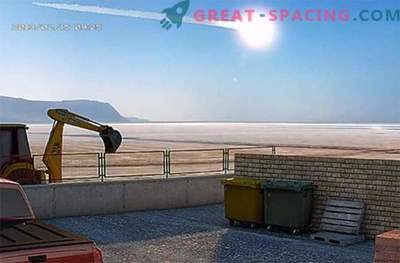
A new study suggests that the earth's atmosphere is the best shield against meteorites. When the meteorite rushes to our planet, the air under high pressure in front of it leaks into the pores and cracks, tearing the body and causing an explosion.
A large gradient is created between the air above the meteor and the vacuum. If the air can move through the aisles in the meteorite, then it will easily fall inside and tear up pieces.
Researchers have long known that meteors often explode when they enter the earth’s surface, but no one could explain exactly why this happens. To find out the details, we decided to explore the Chelyabinsk event of 2013 (Russia).
The explosion was completely unexpected and released energy comparable to the use of small nuclear weapons. When the object hit the atmospheric layer, it formed a bright fireball. After a few minutes, the shock wave blew up the windows of the houses, causing hundreds of people to be injured. By weight, the meteorite reached approximately 10,000 tons, but found 2,000 tons of debris, which means something happened in the upper atmosphere that led to disintegration. To solve the riddle, a unique computer code was used, allowing to use solid meteor material and air in the calculations.
The new code has helped to understand that the air passes into the meteorite and reduces its strength. This mechanism works as a protection for earthlings from small objects, but large ones still break through, because they consist mostly of iron, and therefore denser.











































